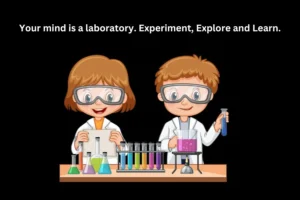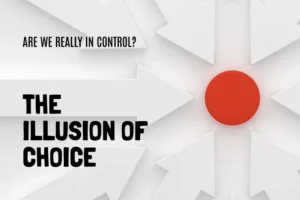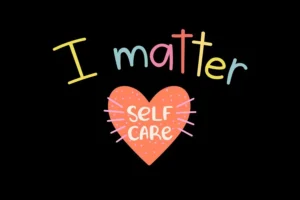Exploring the intricate phenomena that Julian Rotter brought to psychology reveals a play of ideas that has redefined how we humans act. This article in the long run will take you through the biography and work of ‘Julian B. Rotter’ whose contributions to this domain are still being cherished.
From Julian Rotter’s personality theory to the intricate development of Social Learning Theory of personality, we will break it down, explaining the functioning of each of these theories and how it relates to modern psychology.
Learn about Julian Rotter’s Locus of Control ( internal and external locus of control) and Expectancy theory and its life-changing effects on behavior and motivation as we dig deeper into them. Similarly, we analyze Julian Rotter’s contribution to psychology, which entails how he impacted psychological research and whether his approach was different from Freud’s. Insight into Rotter’s theories will be our ultimate mission, engaging in a thorough analysis to widen your knowledge about human behavior.
Table of Contents
Julian Rotter’s Biography
Background of Julian Rotter
One significant psychology theorist was ‘Julian B. Rotter’, originally from Brooklyn, New York, on the 22nd day of October 1916. It was a Jewish immigrant family that raised him and gave him an insatiable interest in human nature and its formation factors.
Early Life and Education
Julian Rotter started university at Brooklyn school where he first majored in chemistry and then switched to psychology. He has both an undergraduate degree and a master’s degree from the University of Iowa at the moment. Rotter received a Ph.D. in ‘clinical psychology’ from Indiana University in 1941 and this laid the foundation for his future endeavors.
Notable Achievements and Awards
Rotter’s psychologically significant concepts and theories earned him recognition and popularity throughout his professional life. In 1963 he was conferred with the prestigious American Psychological Association (APA) Distinguished Scientific Contribution Award, which reflected his great effect on science. His groundbreaking work and ideas are still used in current psychology theories to this day, making his influence on the discipline perennial.
Julian Rotter’s Theory of Personality
Explanation of Rotter’s Theory of Personality
Julian Rotter’s Theory of Personality is viewed as a new analogy of the old one, which introduces a concept of social learning and individual perception on shaping behavior. Therefore, radical behavior is considered to be an interaction of several factors that could be either the environment or personal characteristics.
The heart and soul of his theory is the concept of ‘expectancy’ which is the estimation of certain results that adhere to precise actions. Such anticipations, in turn, work on people’s perception of choice and display of their behavior.
Components of Rotter’s Theory of Personality
Components of Rotter’s Theory of Personality are discussed below:

Internal vs External Locus of Control
Rotter delineated several crucial elements within his Theory of Personality. The first and foremost criterion is the ‘internal vs external locus of control’. Individuals with an ‘internal locus of control’ view their actions as contributing directly to outcomes, whereas people with an ‘external locus of control’ do not believe that. This difference can have deep repercussions on appreciation, realization, and ways of solving problems.
Locus of Reinforcement
Additionally, a key element of Rotter’s theory lies in the “locus of reinforcement” which is the source of ‘reinforcement’ for any given behavior. As per Rotter’s theory, the ‘reinforcements’ can either be internal (such as personal goals attainment or feeling of accomplishment) or external (such as social appraises or material rewards). The loci of reinforcement affect the intensity and duration of behaviors, in addition to people’s feelings of self-efficacy.
Behavior Potential
Moreover, Rotter pointed out ‘behavior potential’ which is related to the likelihood of a person exhibiting a particular behavior in a given situation. Such an idea understands both the individual belief and the worth of ‘reinforcement’ associated with a specific behavior.
Julian Rotter’s Social Learning Theory

Overview of Julian B Rotter’s Social Learning Theory
According to the ‘social learning theory’ by ‘Julian B. Rotter’, behavior is adopted by imitation and modeling of people in social settings. In contrast to the behaviorism of the past, which focused on reinforcement in directing behavior, Rotter’s theory focuses on the cognitive processes accompanying learning.
Right in the heart of Rotter’s theory is expectancy – the belief that a given behavior will bring about a specific outcome. As per Rotter, individuals make efforts to undertake behaviors that they believe will produce favorable consequences. This ‘expectancy’ is formed by the way of behavior and its consequences, one’s prior experiences, and social learning history.
Key Concepts of Rotter’s Social Learning Theory
According to ‘Rotter’s Social Learning Theory’, several noteworthy concepts lead to the understanding of human behavior. An example of this idea is the ‘reinforcement value’ which is the subjective worth or attractiveness of a certain outcome. People tend to be involved in things that on their part they expect to yield positive results or rewards.
Yet another concept is a psychological state that comprises how the person perceives the surroundings and the signals that affect behavior. Another of his contributions lies in the area of observational learning. Individuals acquire behaviors by watching others and the results of their actions.
Moreover, Julian B Rotter’s theory stresses the importance of ‘personal control’ as people differ in their beliefs about their capacity to affect events and outcomes in their lives. ‘Rotter’s Social Learning Theory’ provides a detailed explanation of the high level of cognitive processes, social interactions, and environmental factors that engender behavior.
Julian Rotter’s Theory of Locus of Control
What Is Rotter’s Theory of Locus of Control?
Locus of Control Definition
The term ‘locus of control’ is all about how much power over the situation the individuals think they possess. To sum up, Rotter perceived this spectrum from internal to external control.
People with ‘internal locus of control’ think that they can shape their lives by some kind of influence on the outcome, while others with ‘external locus of control’ blame external factors such as luck or fate rather than their actions for such results.

Rotter’s Contributions to The Theory of Locus of Control
Rotter had come up with the theory of locus of control which revolutionized the perspective about human behavior. According to his theory, an individual’s control perception plays a major role in their behavioral patterns, attitudes, and achievements. Rotter’s trailblazing research set the stage for future psychology studies aimed at understanding the dynamic relationship between internal convictions and external circumstances.
Impact of Julian Rotter’s Locus of Control on Behavior
‘Julian Rotter locus of control’ has wide-ranging implications for different fields of human study. People with an ‘internal locus of control’ usually demonstrate a higher level of initiative, endurance, and tenacity as they believe they are the masters of their destiny. On the contrary, individuals with an ‘external locus of control’ tend to experience a sense of hopelessness and passivity, which is translated to low motivation and performance.
Julian B Rotter’s ideas have inspired fields other than psychology, including education, business, and healthcare, where the concept of ‘locus of control’ can be applied to enhance results and help people take responsibility for their lives.
Julian Rotter’s Expectancy Theory
What Is Rotter’s Concept of Expectancy?
‘Expectancy Theory’ by Julian B. Rotter is based on the hypothesis that people’s behavior is sponsored by their expectation of the results of their performance. Expectancy is defined as the person’s perception or belief of the likelihood of a specific outcome that follows his/her actions. It traces the degree of confidence in one’s ability to accomplish a targeted result. This hypothesis is based on the fact that people get to do the things that satisfy them and vice versa.
What Are The Three Stages of Expectancy Theory?
‘Rotter’s Expectancy Theory’ comprises three key stages:
| Expectancy | This stage defines the measure of how much the individual believes that the specific behavior will lead to success |
| Instrumentality | In this stage, people assess how well their work is done in attaining the intended outcome to guarantee the achievement of the aimed result. |
| Valence | The valence stage deals with perceived value or attractiveness of anticipated outcomes. It also recognizes that the people can only be motivated by goals if they consider the outcomes valuable. |
What Is an Example of Rotter’s Expectancy Theory?
Illustrating ‘Rotter’s Expectancy Theory’ example can be observed in academic performance. For example, if a student thinks that studying adequately (expectancy) will lead to good grades (outcome), he/she will be more likely to develop self-efficacy. Furthermore, this student believes that high grades will guarantee a place at the dream college (instrumentality). To conclude, this university is the first choice for this student (valence).
Rotter’s theory predicts the individual to be an achiever due to his ‘expectancy’ of attaining good grades, the instrumental belief that good grades result in college admission, and the positive feeling associated with the college of preference, according to the theory.
What Is Rotter’s Motivation Theory?
Social-cognitive theory of motivation, known as Rotter’s Motivation Theory, was developed by ‘Julian Rotter’ during the 50th and 60th of the last century. Consists of the concept of emergency as the center.

Locus of Control and Motivation
| Internal Locus of Control | Whenever individuals are aware of the consequences that stem from their work, they turn into more dedicated, accountable, and determined to succeed individuals |
| External Locus of Control | When people think that they cannot influence the outcomes outside them, efforts fail to seem useful and individuals lack initiative and persistence. |
Expectancy and Motivation
| High Expectancy | The conviction that the result of an endeavor will be positive increases motivation. Belief in their capabilities, they devote themselves more to goal-directed behaviors. |
| Low Expectancy | Uncertainty about the ability to accomplish the desired objectives reduces motivation. People could neglect the tasks or just give up when choosing the hard way. |
Reinforcement Value and Motivation
| High Reinforcement Value | A purpose that is desirable boosts motivation. For example, students can be motivated to study since they want to enjoy congrats from their parents. |
| Low Reinforcement Value | Weak goals are frequently abandoned as people avoid dull or unpleasant experiences. |
Julian Rotter’s Contribution to Psychology
Evaluation of Rotter’s Influence on Psychological Research
Julian Rotter’s contributions to psychological research especially the Theory of Personality and ‘Social Learning Theory’ have had a great deal and long-lasting impact. He achieved this through his empirical studies and rigorous experimentation and as a result, he reformed the methodology and standards of psychological research. His empiricism and stress on rigorous testing made him an important figure who was acknowledged by many researchers and scholars.
Which Psychological Instrument Did Rotter Develop?
Among Julian B. Rotter’s notable contributions is the making up of the Rotter Incomplete Sentences Blank (RISB). This mental attribute, which is aimed at personality assessment and assessing emotional conditions, is made of sentence stems that respondents must complete.
Through interpreting their answers, psychologists receive information about the respondents’ subconscious thoughts, beliefs, and drives. The RISB is still a key psychometric technique that is widely used in ‘clinical psychology’ and brings a lot of useful information about human cognition and behavior.
What Is Rotter’s System Called?
Rotter’s system lowers to the Locus of Control theory, which is one’s take on how much control over life events you have. He differentiated it into internal and external factors of ‘locus of control’ as one who considered that an internal factor was responsible for the outcomes while the other believed in environmental factors that were not within his/her control. Such a mental model triggers far-reaching events occurrence in understanding motivation, behavior, and ‘mental health’.
What Is Rotter’s Basic Formula For Predicting Behavior?
Central to Rotter’s theory is his basic formula for predicting behavior:
Behavior = f (Expectancy × Reinforcement Value)
This formula points out that people’s actions are determined by how much they want to get something and how strongly they desire it. Cognitive functions and ‘achievement motivation’ were intertwined which led to the making of a holistic model for the comprehension and prediction of human behavior in different settings.
Impact of Rotter’s Approach on Modern Psychology
‘Julian Rotter’ has shaped modern psychology by penetrating clinical, educational, and organizational realms. The interplay of his theories on the relationship between cognition, environment, and behavior forms the basis of present-day theories of motivation, ‘personality’, and social learning. He has created some great opportunities for researchers and practitioners and got teachers to study the human mind.
How Did Rotter’s Approach Differ From Freud’s?
Rotter’s Approach Differs from Freud’s in Several Key Aspects which are discussed in the table below:
| Aspects | Rotter | Freud |
| Focus on Behavior vs Focus on Unconscious Mind | Rotter’s philosophy emphasized conduct that was visible and originating from external events | Freud’s centered on the unconscious mind and internal conflicts. |
| Locus of Control vs Psychosexual Development | Rotter had the Locus of Control being the basis of his theory. That is one person’s belief system that has an impact on his/ her life events. | Freud was more focused on psychosexual development and the effects of childhood experiences on ‘personality’. |
| Expectancy Theory vs Psychoanalytic Theory | Rotter suggested that the only impulse that guides people’s actions is the expectation that there will be some desired outcome. | Freud viewed people as beings controlled by subconscious drives and conflicts. |
| Scientific Method vs Interpretation | The roots of the Ratter approach were empirical research based on the scientific method, which tried to be objective, providing reflective measurement and prediction | Freud relied heavily on his imaginative individual analysis of clinical cases. |
| Individual Differences vs Universal Constructs | Rotter took into consideration individual differences in behavior, together with environmental factors | Freud deliberated on some constants like the id, the ego, and the super-ego, which apply to every person. |
Conclusion
Julian B. Rotter, one of the major psychologists, forever influenced psychology through his fundamental theories and discoveries. The biography of a man who was deeply concerned with human nature, molded by his upbringing, schooling, and numerous awards.
Rotter’s theory of personality discloses the complex relationship between people and their surroundings, where cognition is a key factor. The essence of his theory is the construct that brings forth the depth of human personality.
Firstly, there is the social learning theory of Rotter that places great emphasis on observation and thinking in molding behavior, thus contributing invaluable insights into how people adopt and revolve their behavior.
His theory of locus of control which contributed greatly to psychological thought by introducing the topic of internal versus external control and how it affects human behavior. The theory of expectations from Rotter considers the function of beliefs and expectations in making people motivated.
His significant contribution to psychology is seen in the emergence of psychological tests and predicting behavior systems that later formed the foundation for research and practice today. On the contrary, Rotter, in his mode of thinking, prioritizes cognition over unconscious drives, which shows clearly a change in the psychological thinking paradigm. Finally, Rotter’s everlasting contribution stems from his pioneering theories and their immense influence on modern psychology, guaranteeing that his name will be etched into the annals of history.













